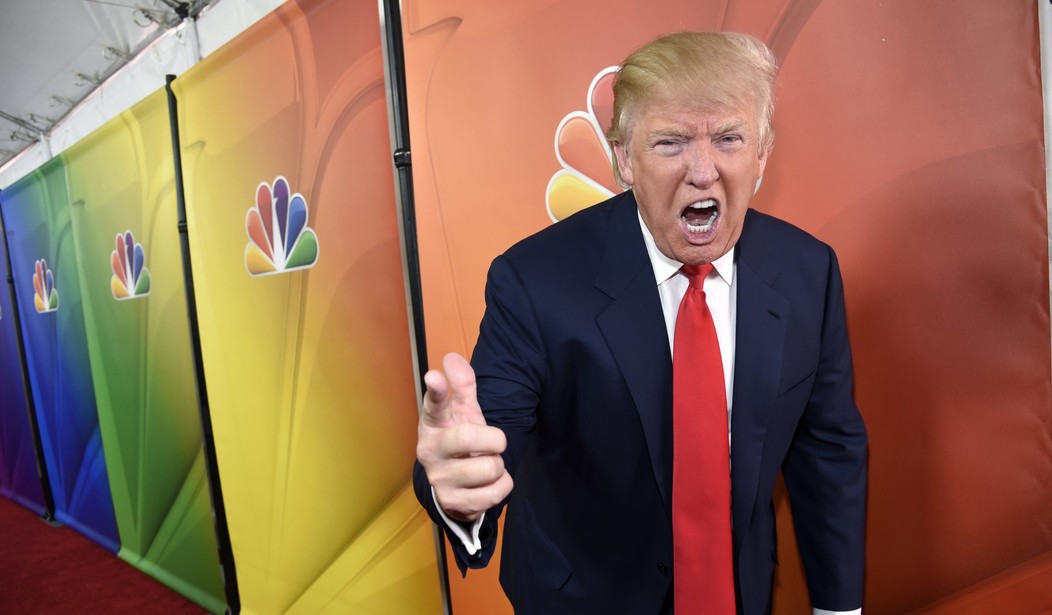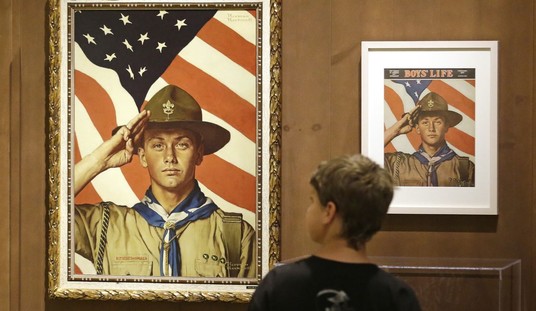My late friend and colleague Hilton Kramer used to tell the story about how Time magazine (remember Time?) would prep its photographers before sending them off to snap the likeness of someone they were profiling. The magazine didn’t just want a portrait. It was always “Good guy” or “Bad guy.” This was well known. So when Time sent someone to photograph Norman Podhoretz, the former editor of Commentary who had lately shed his left-wing opinions and emerged as a powerful voice on the Right, Norman had the wit to ask “Good guy or bad guy?” The photographer shook his head sadly and admitted, “Bad guy.” At least Norman knew what he was in for.
That’s how the media’s mythmaking machine works: it’s heroes or villains. The categories are not quite impermeable — there is a certain thrill about watching a former hero suddenly lose his halo and, Lucifer-like, plunge into the darkness. That happens every now and then just to keep things lively. But it is remarkable how solid the media’s loyalty is while it lasts. Consider, speaking of Time magazine, the notorious example of Nina Burleigh, the former Time reporter whose fifteen-seconds of fame came during the Bill Clinton-Monica Lewinsky scandal. “I would be happy,” Burleigh said, “to give [Clinton] a blowjob just to thank him for keeping abortion legal. I think American women should be lining up with their Presidential kneepads on to show their gratitude for keeping the theocracy off our backs.”
Noted.
The point was that, back then, Bill Clinton, and Hillary by proxy, were still bathed in the beneficent light of media invulnerability. The nimbus has been breached, in large part because of Donald Trump’s response to Hillary’s charge that Trump was “sexist” (though he did have an assist from Bill Cosby). But while it lasted, the Clinton Carapace was a remarkable thing, as the words “Rose Law Firm files,” “Whitewater,” “Cattle futures,” “Benghazi,” “Clinton Foundation,” “email scandal,” and females with kneepads too numerous to name suggest. There seemed to be almost nothing that Bill or Hillary could do that would earn them the serious displeasure of the media, and hence, the serious displeasure of the serried ranks of semi-automata we ennoble with the name “the voting pubic.”
To a large extent, that temporary status, that “Queen for a Day” tiara, has been passed on to Donald Trump. As Trump himself put it, with only slight exaggeration, he could stroll down Fifth Avenue, guns blazing, and “shoot somebody and I wouldn’t lose voters.” It is important to understand that this undiplomatic immunity, though reinforced by the acclamation of his fans, is a creation and ultimately a creature of the media. It’s the media dispensation that provides the cover, the nurturing environment, in which the magic spell works. Remove the media sanction and the cold light of day floods in.
Yet of course the fans are an essential element in the process. They form the gallery to which the media plays. There are two things to bear in mind about the fans. One is their virulence. Take a look at the comments to any negative piece about Donald Trump. Hysteria and anger are the hallmarks of his fans. In this respect Trump fans are a bit like Obama fans back in the it-was-dawn-to-be-alive-then days of 2008 when Obama was promising to heal the earth and slow the rise of the seas. That all seems queasy-making now, like the scent of whiskey the morning after. But I suspect that the coterie that Trump fans most closely resemble are the acolytes of Ayn Rand, who tend to respond to criticism of their patron saint with an intemperateness that is partly alarming, partly amusing.
The second thing to bear in mind is perhaps the most difficult to take on board intellectually. It is the utter irrelevance of substance to their enthusiasm and, consequently, their imperviousness to argument. To listen to Trump’s fans, you would think that he was a conservative hero, a modern-day Hercules set on flushing the Augean Stables of Washington of the filth and incompetence accreted there by decades of scratch-my-back-I’ll-scratch-your-back cronyism. In fact, he has consistently supported the left-wing, big-government, crony-capitalist, morally latitudinarian agenda they say they are against. Consider the litany compiled by Breitbart, which goes through Trump’s positions on immigration, foreign policy, abortion, same-sex marriage, religious freedom, entitlements, campaign finance reform, government involvement in the economy, education, healthcare, trade, and guns. It’s an illuminating recital, or it would be if Trump’s actual stated positions made any difference to his fans.
The great irony is that Trump fans believe that he is the one true conservative, the one non-RINO, anti-“establishment” figure among the GOP candidates. But his actual positions align him quite closely with the figures he has supported lo these many years, Hillary Clinton, Barack Obama, Nancy Pelosi, Harry Reid, and the rest of the Democratic pantheon. Andy McCarthy summed up the vertiginous reality a couple of days ago in National Review. “I’m trying to understand,” he wrote,
how the consummate pro-Democrat insider gets to be electable — as a Republican, and in an election that’s supposed to be all about the outsiders. How does the living, breathing instantiation of everything conservatives say they hate about big-government, special-interest insider dealing get to run as the scourge of Washington’s “broken system”?
It really is a puzzle.
The worst thing about Barack Obama’s legacy is not any particular policy or program. You might think, as I do, that Obamacare is a disaster, that his foreign policy has been criminally inept, and on and on. But when Obama stood before his adoring fans in 2008 and promised that he was on the threshold of “fundamentally transforming the United States of America,” he didn’t just mean he was going to advance a certain legislative agenda. He meant that he was going to upend the way the United States had been ruled since 1787. The Founders of America bequeathed us a Constitution designed to limit executive power and provide important protections to citizens against the coercive power of the state. Obama has assaulted those protections at every turn, ignoring Congress and governing partly by executive fiat, partly by the alphabet soup of regulatory preemption, i.e., through the instrumentality of unelected bureaucrats who have enormous power over you but are almost wholly unaccountable. Not only does Donald Trump not challenge any aspect of this usurpation, he positively glories in it, bragging, for example, about bribing politicians so that he can later call in favors. What’s more, his fans, many of whom consider themselves conservatives, applaud him for it. It is very strange.
The reason I support Ted Cruz is I believe him when he says that, if elected, he will do his best to “preserve, protect, and defend” the Constitution, as stated in the presidential oath of office. Cruz believes in limited government and the rule of law, not government by diktat. He wants to wrest authority from centralized Washington bureaucracies and give it back to the states and their local communities. There is not a scintilla of a hint that Trump would do anything of the kind.
Donald Trump’s most famous performance before his current engagement was also on a reality TV show. In that earlier role his signature line was “You’re fired.” He is still promising to deliver the laugh-getting line, only this time it’s the American people he is proposing to fire. His fans seem to think that’s just terrific. The rest of us are not at all amused.









Join the conversation as a VIP Member